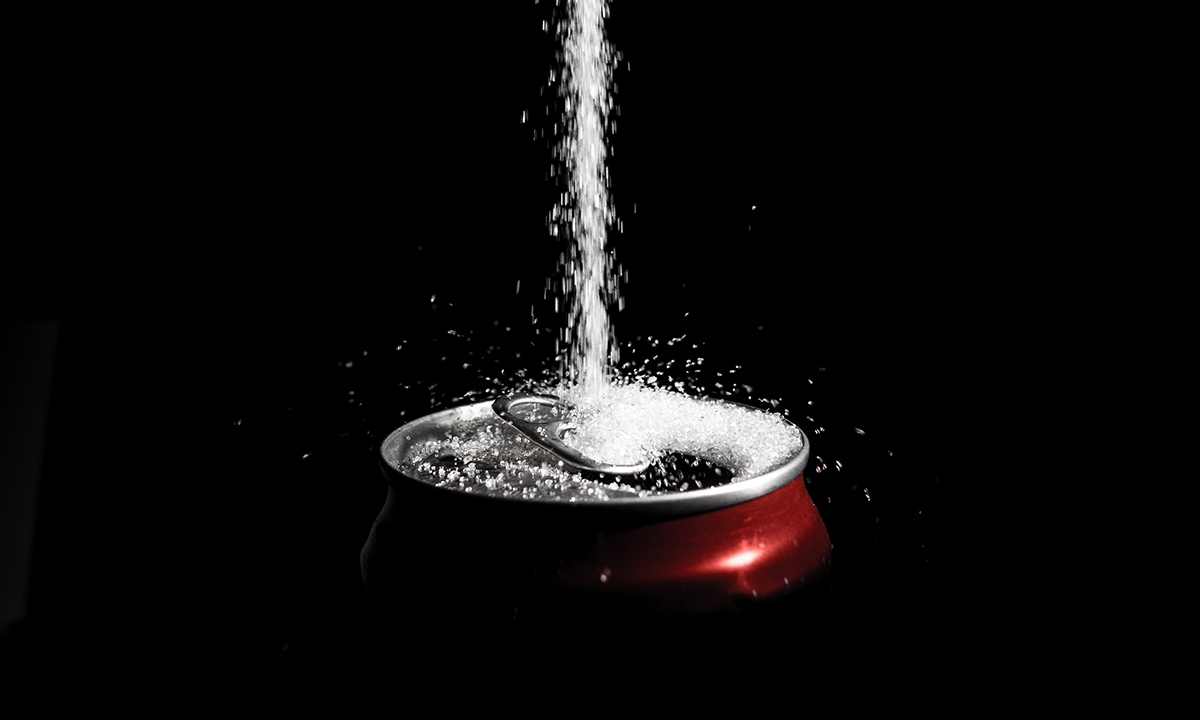WHEN you buy a can of Coke in New York, are you getting the same drink as you would in Sydney? You may think so, because branding sends a powerful message of uniformity. But a short report published in the MJA this week shows it isn’t necessarily so.
Researchers from Melbourne’s Baker Heart and Diabetes Institute looked at the sugar content of four popular soft drinks – Coke, Pepsi, Sprite and Fanta – using samples sourced in Australia, Europe and the US. While they found similar overall levels of sugar, there was a marked geographical variation in the type of sugars used in these drinks.
Australian soft drinks are largely sweetened with sugar cane-derived sucrose, while in the US, corn syrup, which is high in fructose, is mostly used. Europeans prefer sucrose-rich sugar beet. The upshot is that the sucrose, fructose and glucose levels of these drinks vary considerably according to continent.
Total glucose concentrations are quite a bit higher in Australia compared with the US, while fructose levels are lower. A hundred millilitres of Aussie Coke, for instance, has just under 6 g of glucose, while the US variety has around 20% less. Coke may be the “real thing”, but its reality very much depends on where you are.
The different types of sugar metabolise in different ways. Fructose promotes lipid accumulation and may contribute to fatty liver disease, while glucose causes hyperinsulin secretion and may lead to weight gain and diabetes.
In an exclusive podcast for MJA InSight, senior author Professor Bronwyn Kingwell, head of the Metabolic and Vascular Physiology Laboratory Program at Baker Heart and Diabetes Institute, says it’s not fully understood how the two sugars differentially affect our metabolism.
“It could be that drinks of a certain composition have an increased risk for certain types of metabolic diseases,” she explains.
“We’re a bit in the dark at the moment as to what the long term consequences of consumption of Australian drinks are. But what this study does is put it out there that our drinks are different, and it’s something we need to look into.
“The bottom line is if you’re taking in excess sugar relative to your energy expenditure, that’s bad news. What type of bad news – whether it’s your liver or your pancreas that goes first – is what we need to look into.”
Associate Professor Sof Andrikopoulos, Head of the Islet Biology and Metabolism Research Group at the University of Melbourne, concurs.
“It’s really interesting research. What I’d like to know now is whether the US is seeing a higher incidence of liver disease or dyslipidaemia than we do in Australia, due to higher concentrations of fructose in these drinks.”
But overall, he doubts one type of sugar – fructose or glucose – is any better than the other.
“They’re both horrible and we should be avoiding them. The regional differences are very interesting, but what we should actually be advocating is plain old water. It has zero fructose and glucose and that’s the benchmark. Whichever way you look at it, these types of sugar-sweetened beverages cannot be good for you.”
Both Professor Kingwell and Professor Andrikopoulos are sympathetic to public health measures such as a sugar tax for soft drinks.
“Given what we know from other parts of the world where they’ve taxed sugared drinks and have seen reduced consumption, then I think I’m in favour,” says Professor Andrikopoulos.
But he adds that the important thing health advocates need to be doing is education.
“We need to make the public aware that sugar-sweetened beverages aren’t good for you and do contribute to metabolic problems. I also think we need to limit these drinks’ availability to children, in schools for instance. We’re already taking them out of hospitals.”
And he says we need to advocate for the alternatives.
“There’s always water. Or even tea or coffee. Keep it black, with no sugar, and it’s absolutely fine.”
To find a doctor, or a job, to use GP Desktop and Doctors Health, book and track your CPD, and buy textbooks and guidelines visit doctorportal.

 more_vert
more_vert